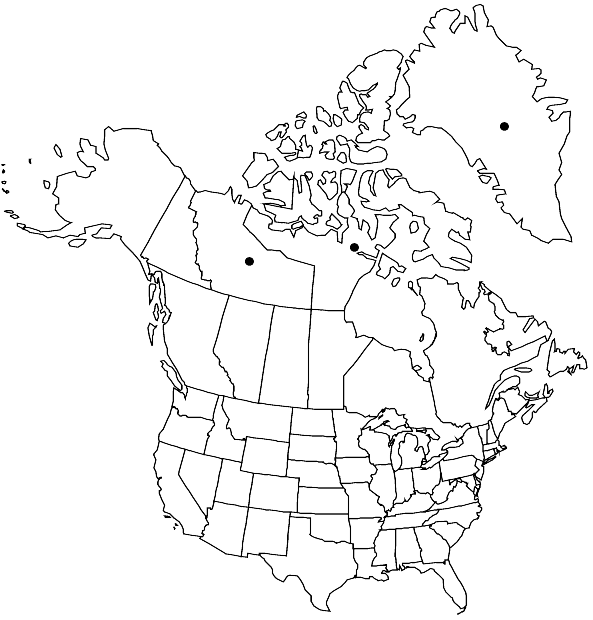Schistidium holmenianum
Bryologist 79: 208, figs. 1–16. 1976,.
Plants usually in extensive open tufts or mats, dull black or dark red-brown. Stems 2–13 cm, central strand absent. Leaves curved or erect when dry, narrowly ovate-lanceolate, usually sharply keeled distally, 1.6–2.8 mm, 1-stratose distally, sometimes with 2-stratose striae near costa proximally; margins recurved to just before the apex, often less recurved or nearly plane on one side of leaf, smooth or slightly denticulate near apex, 1-stratose or 2-stratose; apices acute; costa percurrent or excurrent as a smooth or weakly denticulate awn, abaxial surface smooth or weakly papillose; basal marginal cells quadrate or short-rectangular; distal cells mostly short-rectangular, 7–9 wide, smooth, usually sinuose, walls usually orange-brown. Sexual condition dioicous. Capsule dark brown, short-cylindric or cupulate, 0.6–0.9 mm; exothecial cells isodiametric, quadrate, often irregularly angular, or elongate, cell walls thin, trigonous; stomata present; peristome patent, 275–440 µm, orange-red, usually densely papillose and strongly perforated. Spores 14–25 µm, verruculose.
Phenology: Capsules mature late spring to early summer.
Habitat: Over soil, litter, and amongst plant bases in Arctic fens and tundra, often along drainage channels
Elevation: low elevations (0-100 m)
Distribution

Greenland, N.W.T., Nunavut, Eurasia.
Discussion
Schistidium holmenianum does not grow on rock, but rather forms large tufts or mats over soil, or amongst litter and plants in arctic habitats. Schistidium grandirete grows in similar habitats but also on rock. The presence of sporophytes, the lighter color of the plants, the absence of orange-brown cell wall coloration, a more papillose costa, and the consistently larger cells separate S. grandirete from S. holmenianum. Although reported from North America, S. andreaeopsis (Müller Hal.) Lazarenko has been omitted in this treatment. All specimens that were examined, including those named as S. andreaeopsis, fall into the descriptions of S. holmenianum as provided by Steere and Brassard and H. H. Blom (1998). According to Blom, S. andreaeopsis has larger and more sinuose distal laminal cells, darker red-orange cell walls, a much weaker costa, and predominantly 1-stratose and denticulate or papillose-denticulate leaf margins.
Selected References
None.